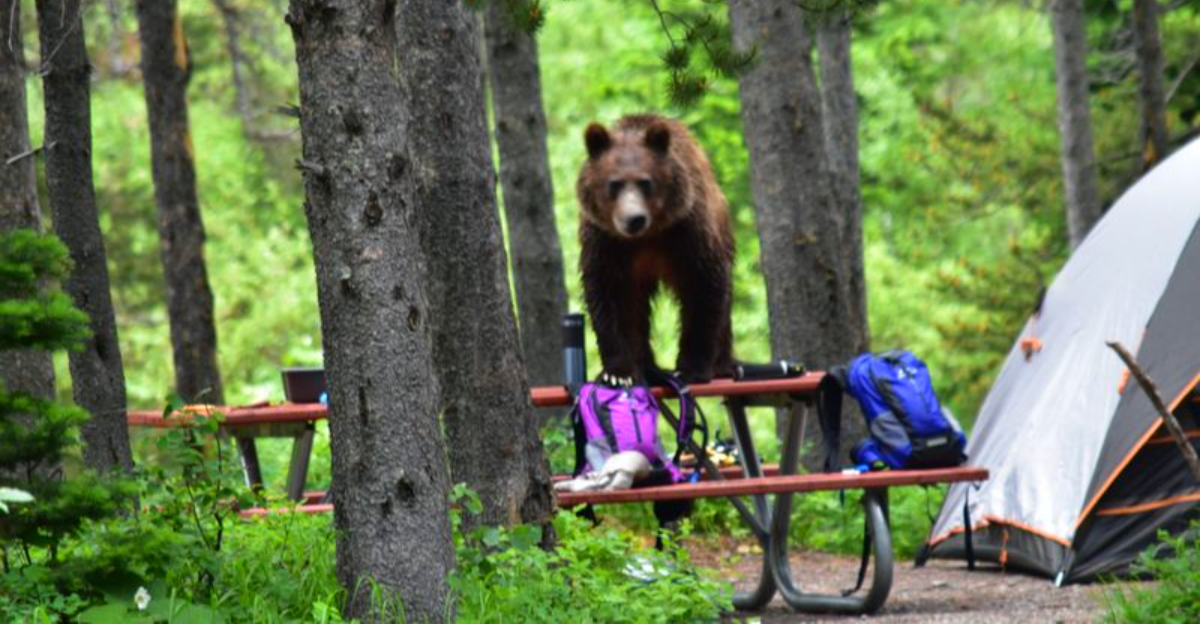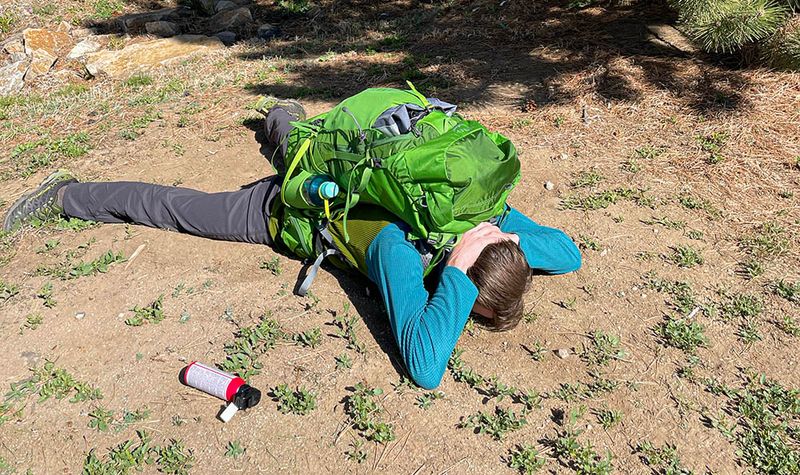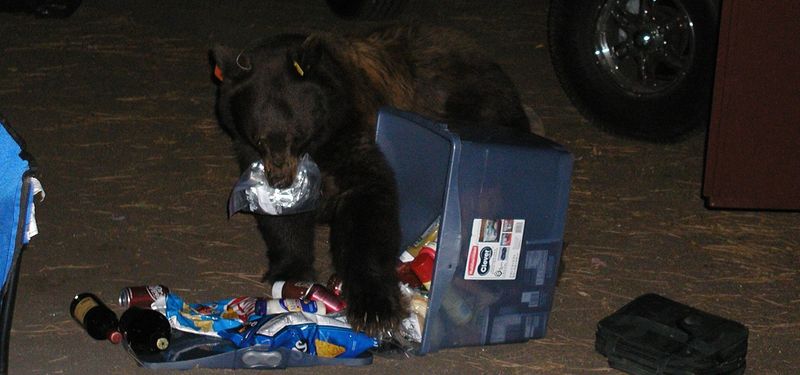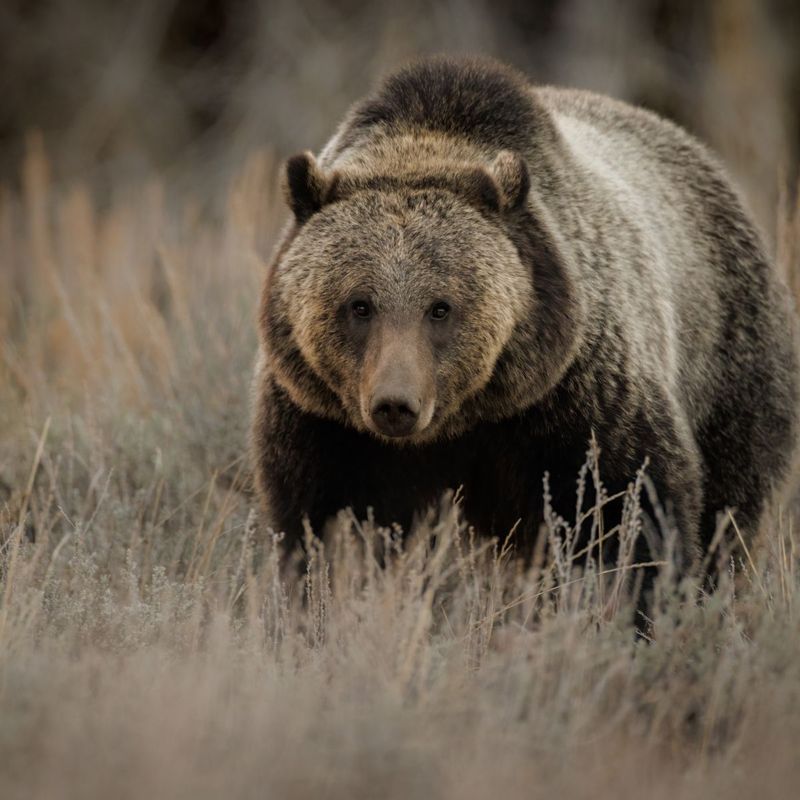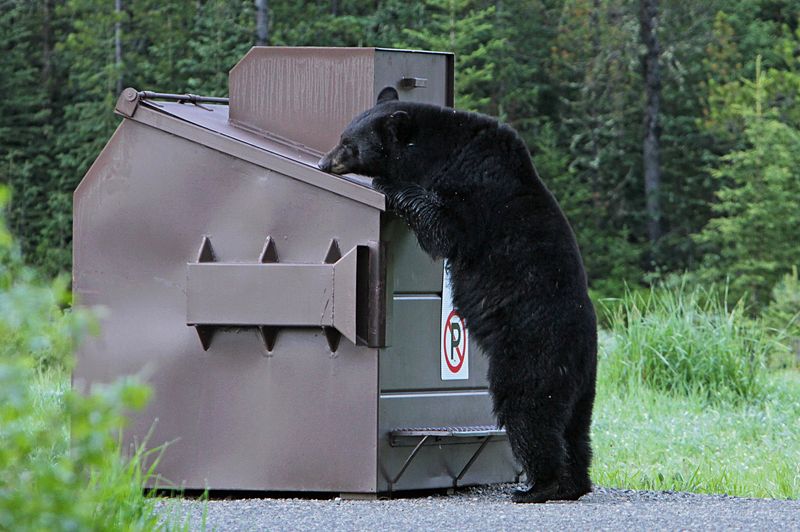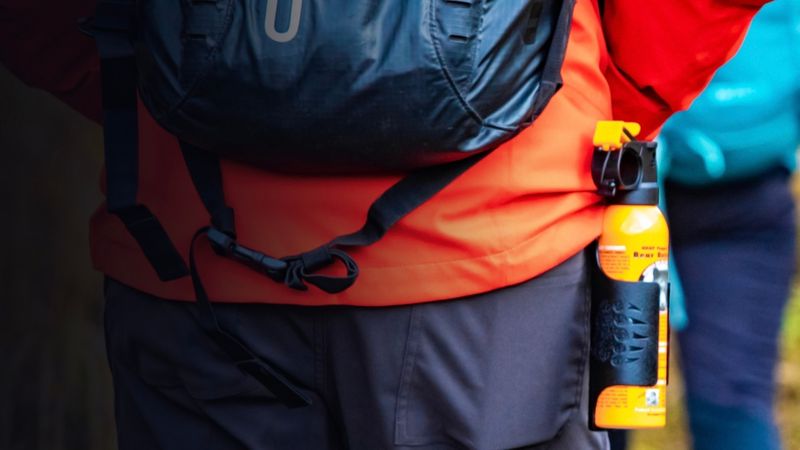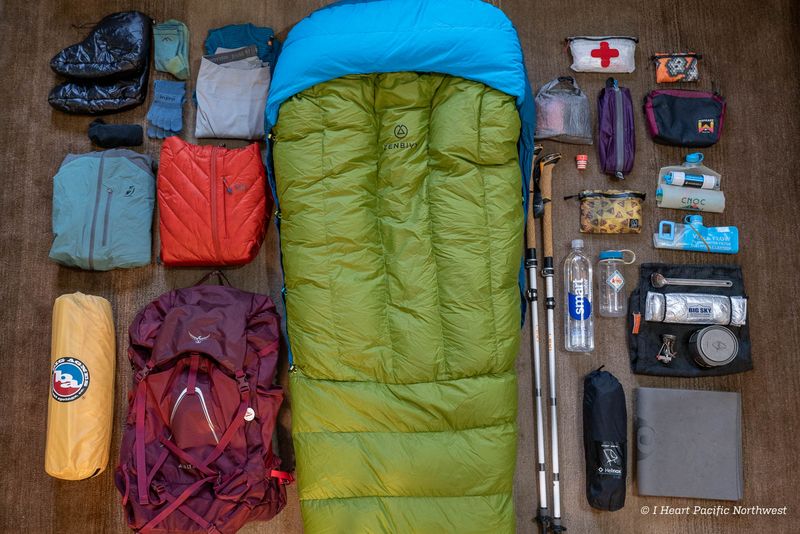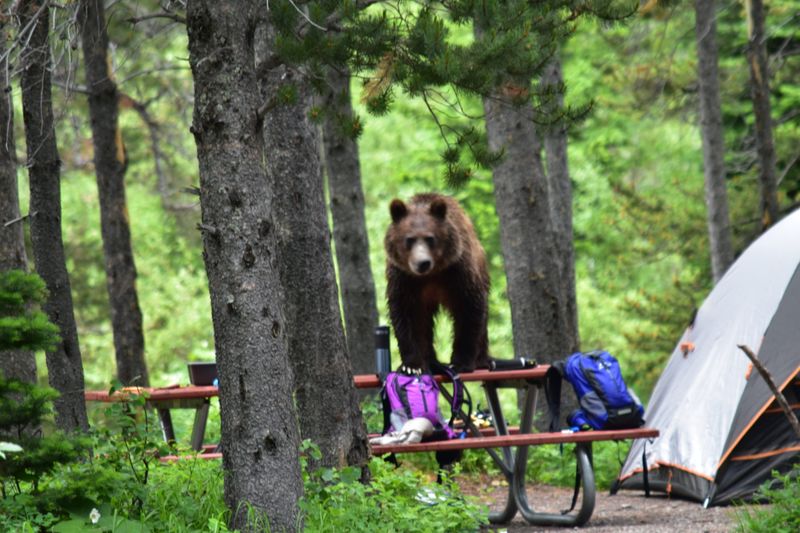Running into a bear on the trail is every hiker’s nightmare, and your split-second decisions can mean the difference between safety and disaster. One of the most common mistakes people make is dropping their backpack, thinking it will distract the bear or lighten their load for a quick escape. But experts warn that ditching your pack can actually make things much worse, putting you in greater danger and teaching bears bad habits that threaten future hikers.
1. Your Backpack Offers Physical Protection
Your pack can act as a buffer between you and the bear. It’s extra mass in front of your torso, which might shield your body if the bear strikes or swipes.
Dropping it removes that barrier and exposes you more directly. Think of your backpack as armor—it adds padding and creates distance between vulnerable parts of your body and the bear’s claws.
Wildlife experts agree that any layer of protection counts during an encounter. Even a lightweight daypack can absorb some impact and reduce injuries if the worst happens.
2. Bears May Target Your Pack for Food
Many backpacks carry scented items—food, snacks, toiletries. If you drop your pack, the bear may zero in on it, bringing the animal closer to you.
The National Park Service explicitly advises putting away any food and keeping your pack on. They warn hikers not to attempt to distract a bear by throwing food items or backpacks at it.
When you leave your pack on the ground, you’re basically setting out a bear buffet. That tempting smell can turn a curious bear into an aggressive one focused on getting what’s inside.
3. Dropping Your Pack Escalates the Situation
By removing your pack, you effectively change your body shape and stance. The bear might interpret it as a sign of weakness or vulnerability, or perceive you as prey, especially if you move after dropping it.
That change in posture can provoke more aggressive behavior. Bears read body language carefully, and sudden movements or changes signal fear or flight instinct.
Keeping your pack on maintains your larger silhouette, which can help you appear more intimidating. Stability and consistency are key to avoiding triggering a chase response from the bear.
4. It Teaches Dangerous Associations
If bears come to associate dropped packs with food or easy access, they may begin to expect humans to leave gear unattended. This can lead to dangerous habituation and increased risk of future human–bear conflicts.
Wildlife managers work hard to keep bears wild and wary of people. When bears learn that approaching hikers means free meals, they become bolder and more dangerous.
Your decision to drop your pack doesn’t just affect you—it puts every future hiker at risk. Teaching bears to target human gear creates problem animals that often have to be relocated or euthanized.
5. You Squander Precious Time and Options
Once your pack is on the ground, you lose control. Retrieving it under pressure is risky.
You waste time and energy—time you may need to back away, defend yourself, or deploy bear spray. Keeping movement minimal and controlled is safer than scrambling for your gear.
Every second counts during a bear encounter, and fumbling with a dropped pack divides your attention. You need both hands free and ready to use bear spray or protect yourself. Bending down to grab your pack puts you in an especially vulnerable position and could trigger an attack.
6. It Could Hinder Your Access to Essential Tools
If your backpack contains safety gear like a first aid kit, communication devices such as a satellite phone, rain cover, or extra layers, dropping it limits your access to these items when you need them most.
Keeping your pack on increases your chances of having what you need during a crisis. Bear spray stored in your pack’s side pocket becomes useless if the pack is ten feet away.
Medical supplies, emergency blankets, and signaling devices could save your life after an encounter. Staying equipped means staying prepared for whatever happens next.
7. Expert and Authoritative Guidance Supports Keeping Your Pack
Park rangers, national park services, and wilderness safety guides consistently recommend keeping your pack on during a bear encounter. The National Park Service says not to leave any food or personal items lying around or attempt to distract a bear by throwing food items or backpacks at it.
Likewise, outdoor safety sources caution that dropping your pack increases vulnerability and encourages unwanted behavior from the bear.
Professional wildlife managers base these recommendations on decades of research and real-world encounters. Following expert advice dramatically improves your odds of walking away safely from a bear meeting.
